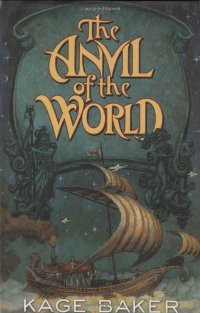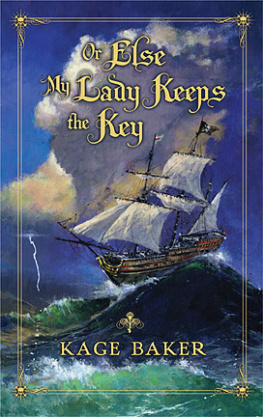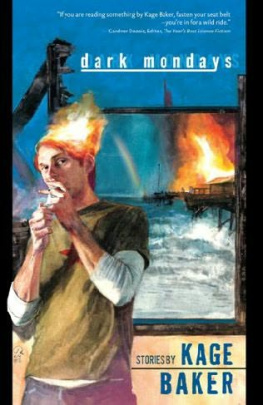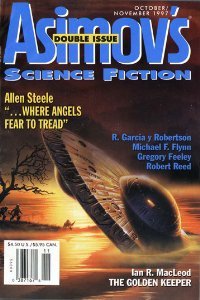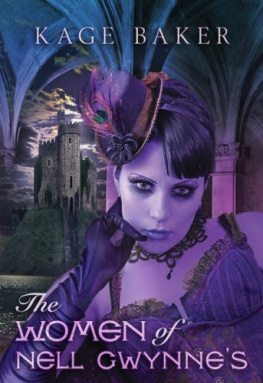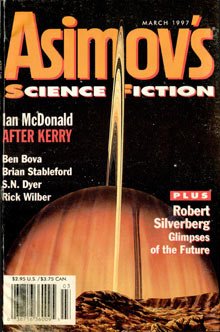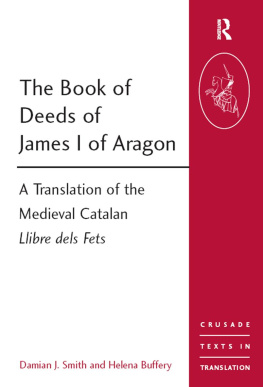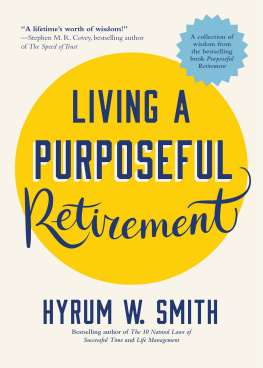Annotation
A fantasy debut by the author of In the Garden of Iden finds former assassin Smith of the Children of the Sun people looking forward to his retirement and overseeing an endangered sea caravan in the wake of those who would kill him for his past deeds.
The Anvil of the World
by Kage Baker
To LINN PRENTIS
Without whom my first novel would have been thrown off the front porch into Pismo Creek, to the edification of none but a transient population of mallards.
Troon, the golden city, sat within high walls on a plain a thousand miles wide. The plain was golden with barley.
The granaries of Troon were immense, towering over the city like giants, taller even than its endlessly revolving windmills. Dust sifted down into its streets and filled its air in the Month of the Red Moon and in every other month, for that matter, but most especially in that month, when the harvest was brought in from the plain in long lines of creaking carts, raising more dust, which lay like a fine powder of gold on every dome and spire and harvester's hut. All the people of Troon suffered from chronic emphysema. Priding itself as it did, however, on being the world's breadbasket, Troon put up with the emphysema. Wheezing was considered refined, and the social event of the year was the Festival of Respiratory Masks.
On the fifth day of the Month of Chaff Storms, as a cold wind scoured the walls of Troon with stubble and husks, a man in a fish mask sat at a table in the Civic Ballroom and wished he were anywhere else.
He belonged to that race called the Children of the Sun, and, like others of his kind, he had skin and hair the color of a sunrise. They were an energetic, sanguine, and mechanically minded people, tracing their lineage back to a liaison between a smith god and a fire goddess somewhere in the deeps of time. They were consequently given to sins of an ecological nature (the slag heaps from their smelters were mountainous), and they were also quarrelsome (their blood feuds were legendary).
It was a particularly nasty blood feud that had sent the man in the fish mask fleeing to distant Troon, and he now sat alone at a table, watching the masked dancers as he glumly sipped beer through a long straw. It wasn't his kind of party, but his cousin (to whom he had fled) insisted he attend. The masked ball was held on the final night of a week of breathless celebration, and everyone of distinction in Troon society was there.
"Er--Smith?"
The man in the mask turned his head, peering through the domed lenses of his fish eyes. The name Smith was an alias, only the latest of many the man had used. He got awkwardly to his feet as he saw his cousin approaching. His cousin's costume was fine and elaborate, robes of red-gold brocade and a fire efrit mask. No less elaborate was the costume of the lady his cousin had in tow: butterfly wings of green and purple foil and a butterfly mask of the same material.
"This, madam, is Smith. My caravan master," explained his cousin. "A most experienced veteran of transport. A man in whose expert hands you may trust the rarest of commodities."
This was not exactly true. Smith had never led a caravan in his life, but his cousin's freight and passenger service had lost its former master to a vendetta on the day of Smith's sudden arrival in Troon, so Smith was learning the business.
"How nice to meet you," said the woman in the mask, and shot out a black and curling tongue. Smith started, but the tongue was merely a feature of the mask, for it was hollow, and she poked it now into a tall glass of punch.
"Honor on your house, lady," Smith murmured.
His cousin coughed, and said, "Smith, this is Lady Seven Butterflies of Seven Butterflies Studio. You will be privileged to transport her celebrated creations!"
"I'm delighted," said Smith, bowing. "Rely on me, lady."
But Lady Seven Butterflies had lost interest in him and fluttered off to the punch bowl. His cousin leaned close and grabbed him by the shoulder. They bumped papier-mache faces as he hissed, "Very important client! Almost ready to sign a contract granting us exclusive transport rights! Used to go with Stone and Son until they broke goods in transit. Vital we catch the ball, cousin!"
Smith nodded sagely. "Right. What are we shipping for her?"
"One gross of glass butterflies, what else?" said his cousin impatiently, and turned to pursue the lady. Smith sat down again. It was a good thing his new job would require him to be on the open road a lot. He didn't think people in Troon got enough oxygen.
He watched the dancers awhile in their stately pavanes, watched the symmetrical patterns their trailing brocades left in the rich layer of floor dust, and brooded on the sequence of events that had brought him here, beginning with an innocent walk to the corner for an order of fried eel.
That he had reached that time in life when really good fried eel was at least as interesting as romance made his subsequent misadventure all the more unexpected. Nor was he especially attractive. Even the girl's brothers had to admit there must have been a mistake on somebody's part, though they weren't about to retract their vow to see Smith's head on a pike, since without benefit of hot-blooded youth or personal beauty, he had nevertheless sent three of their kinsmen to the morgue.
He sighed now, swirling his beer and noting in disgust the fine sediment of dirt at the bottom of the glass. He thought of waving for a waiter, but his cousin came bustling up again with somebody new in tow.
"...with complete confidence, my lord. The man is a seasoned veteran of the roads. Er--Smith! I have the great honor of commending to your care the very noble Lord Ermenwyr of the House Kingfisher."
"Honor to your house, lord," said Smith, rising to his feet though he'd never heard of the House Kingfisher.
Lord Ermenwyr was doubled over in a coughing fit. When he straightened up, dabbing at his lips with an embroidered handkerchief, Smith beheld a slender young man. A pomaded and spangled beard was visible below his half mask, which was that of a unicorn's head. He had extended the unicorn theme to an elaborate codpiece, from which a silver horn spiraled up suggestively. The eyes behind the mask had the glitter of fever.
"Hello," he croaked. "So you're the fellow taking me to Salesh-by-the-Sea? I hope you've had some training as a psychopomp too. I expect to die en route."
"His lordship is pleased to be humorous," said Smith's cousin, wringing his hands. "His lord father has paid a great deal for his passage to the health resort at Salesh, and I have written to assure him in the strongest terms that Lord Ermenwyr will arrive there safely."
"Really?" said Lord Ermenwyr. "Watch this, then." He reached out with the toe of his boot and drew a bull's-eye in the dust. Stepping back several paces, he hawked and spat in a neat arc, hitting the center of the target with a gob of blood.
"You see?" he said brightly, as Smith and his cousin stared. "Utterly moribund. Don't worry, though; I've got embalming spices in my luggage, and Daddy won't mind my early demise much, whatever he may have written."
Smith's cousin closed his mouth, then said hastily, "It's simply the inconvenience of our local weather, my lord. I myself coughed up a little blood not an hour ago. It passes with the first winter rains!"
"I'll be in Hell or Salesh by the time they start, I devoutly hope," snarled the young man. He turned a gimlet eye on Smith. "Well, caravan master, I suppose we're starting at some ungodly hour in the morning? If I'm still moaning on my painful couch at cockcrow, you'll leave without me, no doubt?"

